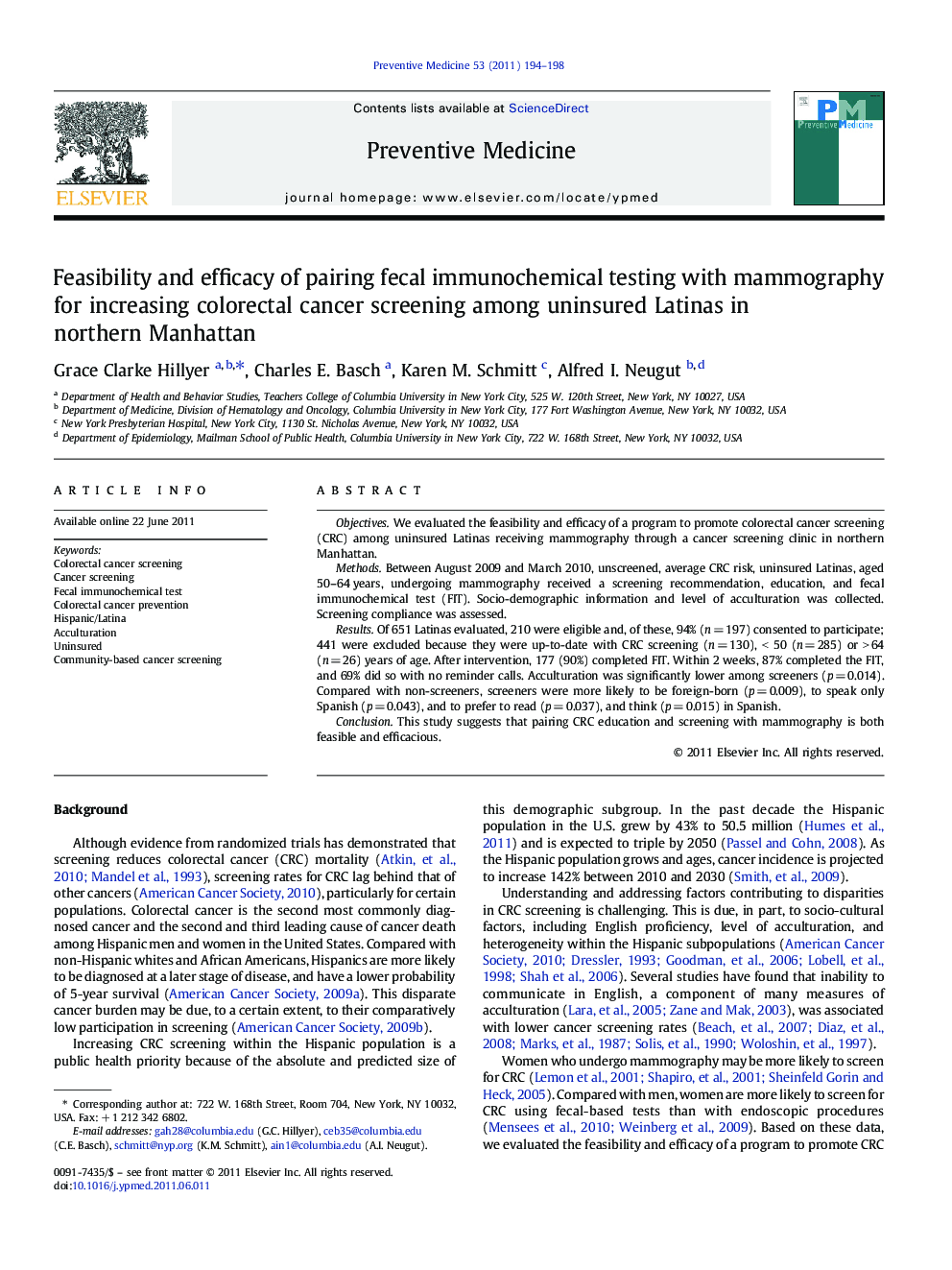| Article ID | Journal | Published Year | Pages | File Type |
|---|---|---|---|---|
| 3100743 | Preventive Medicine | 2011 | 5 Pages |
ObjectivesWe evaluated the feasibility and efficacy of a program to promote colorectal cancer screening (CRC) among uninsured Latinas receiving mammography through a cancer screening clinic in northern Manhattan.MethodsBetween August 2009 and March 2010, unscreened, average CRC risk, uninsured Latinas, aged 50–64 years, undergoing mammography received a screening recommendation, education, and fecal immunochemical test (FIT). Socio-demographic information and level of acculturation was collected. Screening compliance was assessed.ResultsOf 651 Latinas evaluated, 210 were eligible and, of these, 94% (n = 197) consented to participate; 441 were excluded because they were up-to-date with CRC screening (n = 130), < 50 (n = 285) or > 64 (n = 26) years of age. After intervention, 177 (90%) completed FIT. Within 2 weeks, 87% completed the FIT, and 69% did so with no reminder calls. Acculturation was significantly lower among screeners (p = 0.014). Compared with non-screeners, screeners were more likely to be foreign-born (p = 0.009), to speak only Spanish (p = 0.043), and to prefer to read (p = 0.037), and think (p = 0.015) in Spanish.ConclusionThis study suggests that pairing CRC education and screening with mammography is both feasible and efficacious.
► We examined the feasibility and efficacy of pairing mammography and CRC screening. ► CRC education and FIT was offered to uninsured Latinas by bilingual lay educators. ► Pairing CRC screening with mammography yielded a 90% screening rate. ► The majority of participants returned the FIT kit without additional contact. ► Investing time up front reduces the need for intensive follow up.
